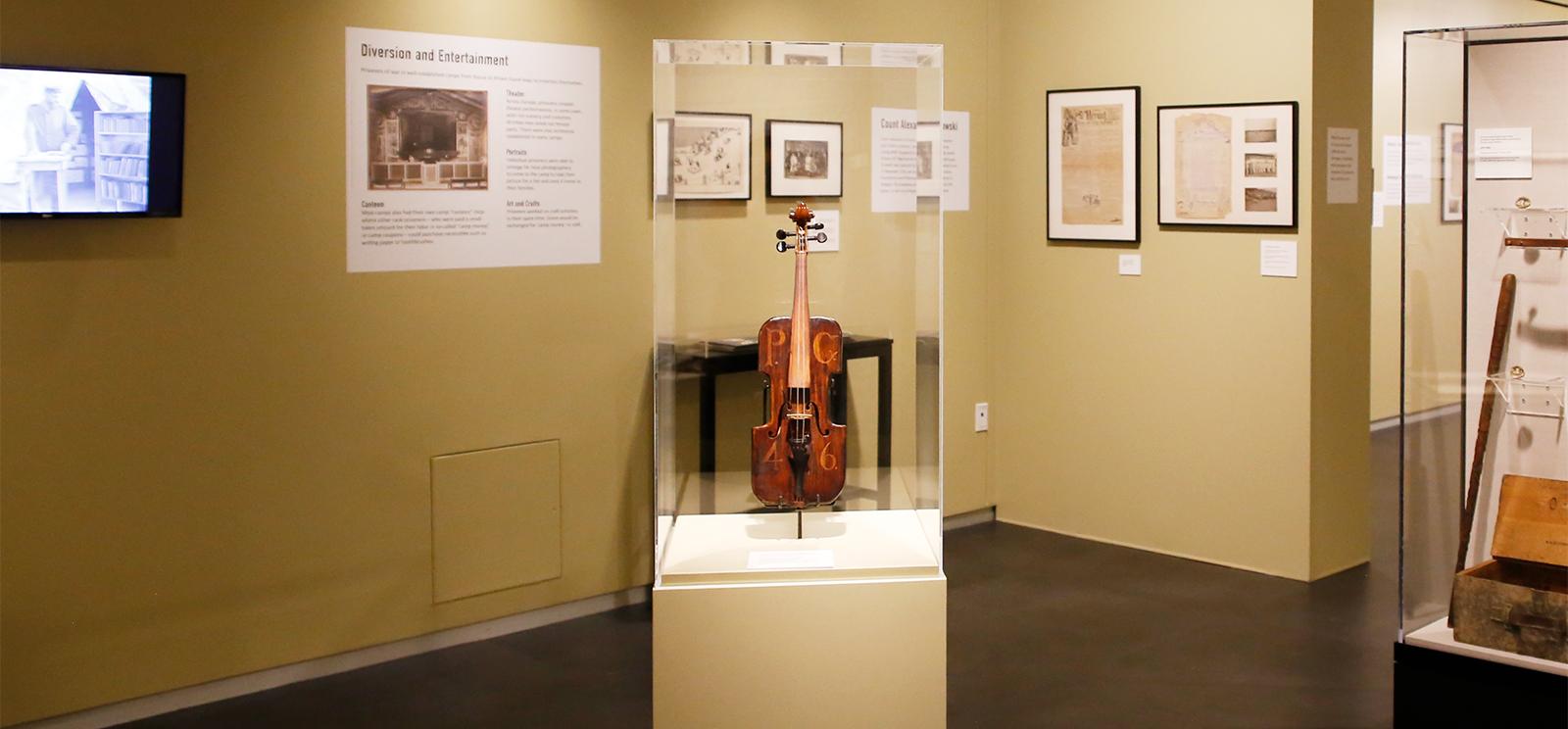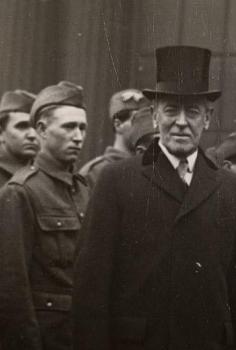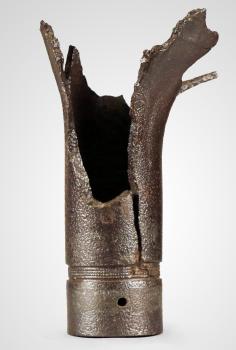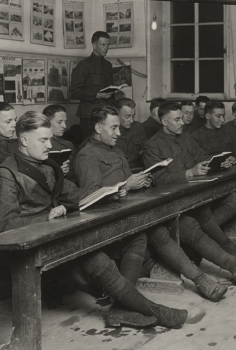Plaintive music wafts across a French compound where German prisoners of war are held behind the wire. German soldier August Christian Voigt is the musician, playing on a violin that he had crafted himself out of wood scavenged from food supply boxes.
Years later, he would relate to his son Gunther that he had asked his French guards if he could have the scrap wood. They allowed not only that, but also gave him a small pocketknife, trusting he would not try to make an escape with it. Using other found parts, the violin worked well enough that, in Voigt’s telling, “the guards would bring their wives and they danced to the music I would play.”
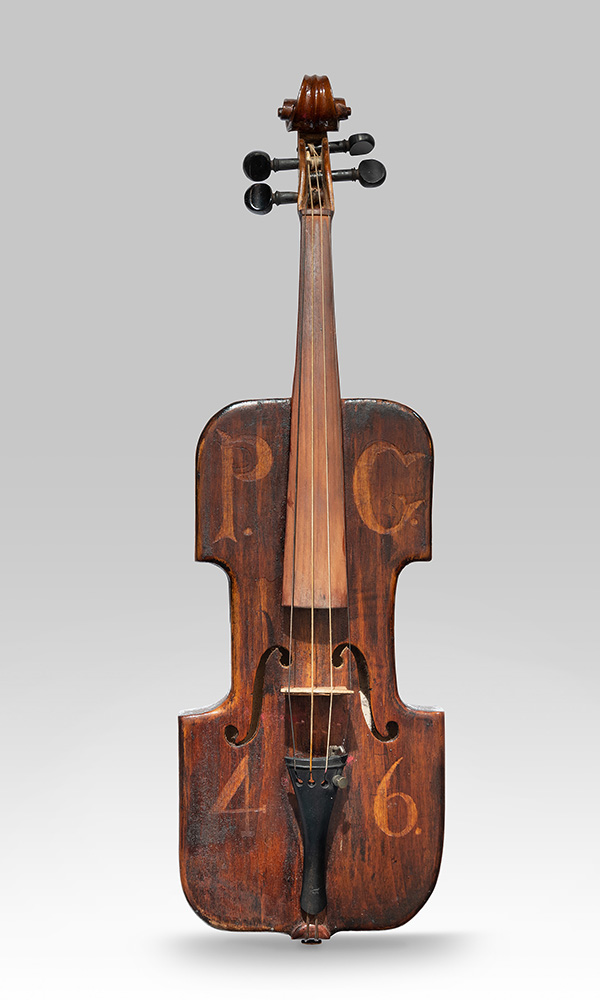
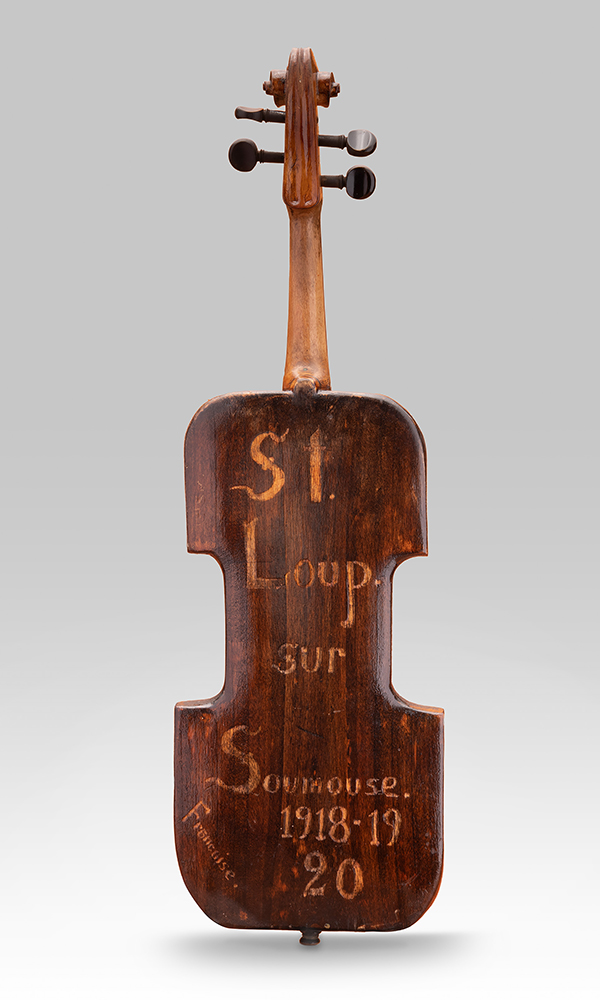
Violin
The front of the violin is marked “P. G. 46” – Prisonnier de Guerre number 46. The back is marked “St. Loup sur Soumouse, 1918-19-20 Francoise” – St. Loup sur Soumouse (sometimes spelled “Semouse”) was the name of the prison camp.
Although the war officially ended on June 28, 1919, August Voigt wasn’t released until early 1920. He returned to his hometown of Bremen, Germany with the violin and its handmade case, his one positive reminder of being a prisoner of war. He married Franziska Demski and a year later, Gunther was born.
With conditions worsening in post-war Germany, the small family immigrated to the United States in 1923 and eventually took up residence in Indianapolis, Indiana. Voigt worked for International Harvester there and passed away in 1965.
In 2018, Voigt’s grandson and granddaughter donated the violin and case to the National WWI Museum and Memorial.
